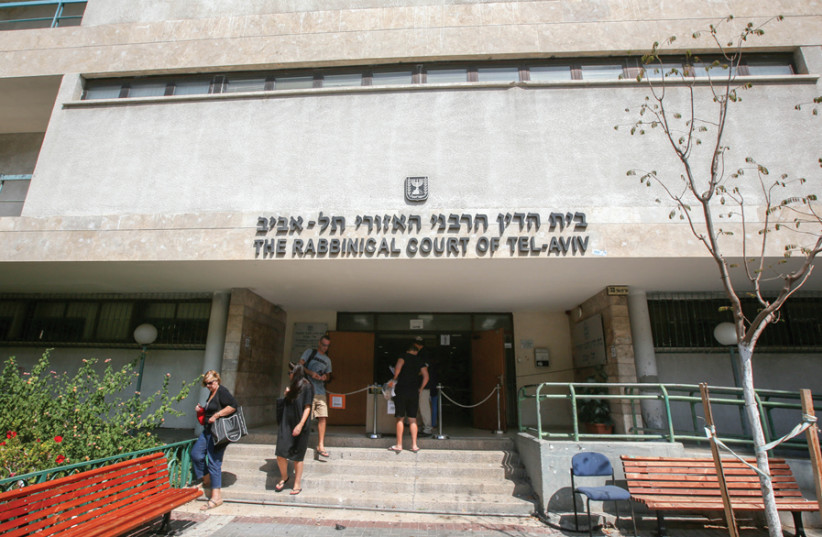The Rabbinical Courts of Ashkelon on Monday successfully arranged a get – a halachic (Jewish legal) document of divorce – for a woman whose husband suffered a severe stroke and lost the ability to speak.
A tricky situation
The woman originally sued for divorce while her husband was still fully able to give one, but he vehemently refused, ignoring court rulings that he "must divorce her immediately and unconditionally."
The man then suffered a severe stroke, thus losing his ability to speak and move, along with some cognitive function. With him not being able to vocally approve of a get – which the husband must verbally consent to according to halachic law – the court feared the woman would be trapped in her marriage for years.
The head of the Ashkelon Regional Rabbinical Court, Rabbi Meir Kahana, appointed medical guardians to help the man rehabilitate. The guardians gained his trust and the trust of his family members, and after a long campaign of persuasion on the part of the family, the husband agreed to divorce.
Proving it to the courts
While getting him to agree to the divorce was difficult enough, as the man could not speak and his family had a special method of communicating with him, it would be even harder to convince the courts that he genuinely agreed. According to halacha, the husband must grant a divorce or appoint a messenger and express complete consent in his voice if he has opposed divorce in the past.

Kahana came to visit the man with pen and paper in hand and proceeded to ask him a series of questions, the first of which was “what city are we in?” The man responded with a contemptuous look and correctly marked Ashkelon from a list of options.
The rabbi then asked the man which of the three football teams listed won the Israeli league – to which the man, a diehard Hapoel Tel Aviv fan, responded by crossing out the three listed team names and himself scribbling Hapoel Tel Aviv, his favorite club.
"It is evident that the husband not only understands the questions and answers but also conducts good and deep human communication," the tribunal ruled. Therefore, the husband appointed a messenger, a writer, and a witness to write the divorce, and the wife was finally granted a get.
